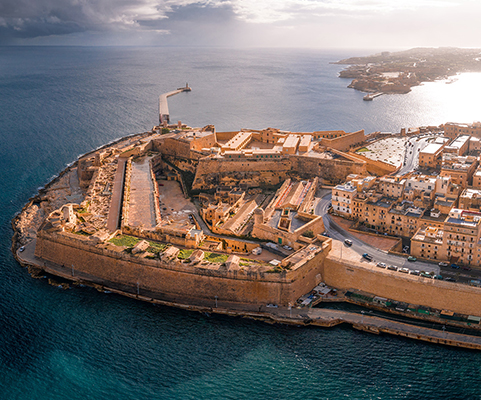

Malta's Taxation System - Paying Taxes in Malta
A common query among individuals seeking Maltese citizenship pertains to potential implications on their taxation in Malta. It is important to clarify that tax liability in Malta is contingent upon the residency and domicile status of an individual, irrespective of their citizenship status.
Tax Implications in Malta:
Taxation in Malta is determined based on an individual's residency and domicile status. A resident is defined as an individual who habitually resides in Malta and has significant ties such as business and family connections within Malta. Generally, a person spending at least 183 days in Malta over a 12-month period, while maintaining a place of residence in Malta, is deemed a resident for tax purposes. Under certain circumstances, an individual may also be considered a resident of Malta without meeting the 183-day requirement, if they have substantial ties to Malta and visit frequently.
Domicile refers to the singular legal domicile of an individual, typically the place of birth. An individual may acquire a domicile of choice by establishing strong ties with a location with the intent to permanently reside there.
A person who is both resident and domiciled in Malta is subject to taxation on their worldwide income, regardless of where that income is received. Under the worldwide basis of taxation, all income and capital gains are subject to Maltese tax regardless of where they arise and where they are received. Conversely, a resident but non-domiciled individual is subject to tax in Malta under the remittance basis of taxation, specifically on all income arsing in Malta and income arising outside Malta is subject to Maltese tax only if and to the extent that it is received in Malta.. Under the remittance basis of taxation, capital gains arising outside Malta are not subject to tax, even if they are received in Malta. Individuals taxed on the remittance basis and earning over €35,000 from worldwide sources are subject to a minimum tax liability of €5,000 per annum.
Individuals who are neither resident nor domiciled in Malta are only taxed on income derived from Malta, with certain income streams potentially exempt from taxation as per article (1) (c) of the Income Tax Act.
Tax rates on taxable income in Malta are progressive, varying based on the individual's personal circumstances (e.g., marital status, parental status) and residency status.
Property Tax:
Malta does not impose a wealth tax, therefore owning real estate in Malta does not incur tax liabilities. Upon acquiring immovable property in Malta, stamp duty at a rate of 5% of the property's market value is due. Other rates may apply on a case-by-case basis.
Upon the sale of property in Malta, property transfer tax is levied on the transfer value of the property. Generally, a final withholding tax of 8%, but other rates may apply based on various factors as outlined in the Income Tax Act. Some exceptions to this general rule include:
- Properties acquired before 1st January 2004 are subject to a property transfer tax of 10%.
- Properties purchased before 25th November 1992 are taxed at 7%.
- If an immovable property is sold within five years of purchase, the tax is reduced to 5%.
Capital Gains Tax:
Several factors influence the applicable tax rate on capital gains tax, including the type of assets and their origin.
In most cases, capital gains tax applies to securities (stocks and shares) and intellectual property holdings. The same applies to immovable property (such as real estate assets and hereditary allowances). These gains are added to the taxable income of the individual or business entity.
Certain securities may also be subject to capital gains tax in Malta, such as assets acquired through share acquisition, which are often subject to stamp duty tax. This duty is calculated based on the market value of the assets at the time of acquisition.
Regarding the sale of assets, individuals or businesses are subject to a flat rate of 35% for capital gains tax in Malta, although exemptions may apply in certain cases.
It's worth noting that any capital gains earned outside of Malta will be taxed if the individual is legally domiciled in Malta.
As mentioned earlier in this article, a resident but not domiciled individual in Malta, isn't obligated to pay tax on capital gains earned outside Malta, even if remitted to Malta and substantiated by documentation. Such individuals are only taxed in Malta on foreign-sourced income remitted to the country.
Value Added Tax (VAT):
Malta's VAT legislation aligns with the EU VAT Directive. The standard VAT rate in Malta is 18%, with reduced rates of 5% and 7% applicable in specific circumstances. Individuals engaged in economic activities generally must register for VAT in Malta. Different VAT registration thresholds apply based on the projected annual turnover and whether intra-community trade is anticipated.
Our team at DZ Advisory is comprised of multilingual professionals who can assist further by providing an accurate provision of your tax as well as other related matters. For more information, kindly provide your contact details, and a member of our team will promptly reach out to you.
